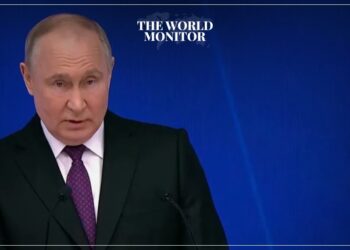The European Union (EU) has provided Ukraine with €1.5 billion in revenues sourced from the frozen assets of the Russian Central Bank, which is part of the extensive sanctions against Russia.
This financial aid, where 90% will support Ukraine’s purchase of weapons, ammunition, and air defense systems, is crucial for combating the eastern invasion.
The remaining 10% is allocated for rebuilding Ukraine’s energy infrastructure, severely impacted by Russian attacks. This concern in Brussels arises from fears that the destruction could lead to a humanitarian and migration crisis in the winter.
Ursula von der Leyen, President of the European Commission, expressed on Friday that supporting Ukraine serves as a poignant use of Russian funds to enhance safety across Europe.
This transfer marks the initiation of a unique funding mechanism that taps into the approximately €210 billion of Russia’s blocked assets within the EU.
The process took several months to finalize after the EU member states agreed on the legal framework in May. Despite Hungary’s initial threats to veto this military support, a legal workaround was employed after Hungary abstained from the agreement, disqualifying its participation in subsequent actions.
Initially set at €1.4 billion, the funding amount was adjusted to €1.5 billion due to fluctuating interest rates.
The funds, derived from sanctions imposed in early 2022 and managed by Brussels-based Euroclear, will be directly infused into Ukraine’s budget, differing from previous reimbursements under the European Peace Facility (EPF), which has been stalled by Hungary, freezing €6.5 billion.
With no foreseeable solution to the EPF deadlock, the EU and the US are collaborating on a $50 billion loan to Ukraine, using the frozen assets as security.
The sanctions are reviewed every six months, posing a risk if renewal is blocked, potentially unfreezing the assets and jeopardizing the loan.
The Commission is considering options to ensure stability, including indefinitely freezing the assets until Russia compensates Ukraine or extending the renewal period of the sanctions.
These proposals are still under early discussion and expected to extend beyond the summer. Unanimity remains essential for any decision.






